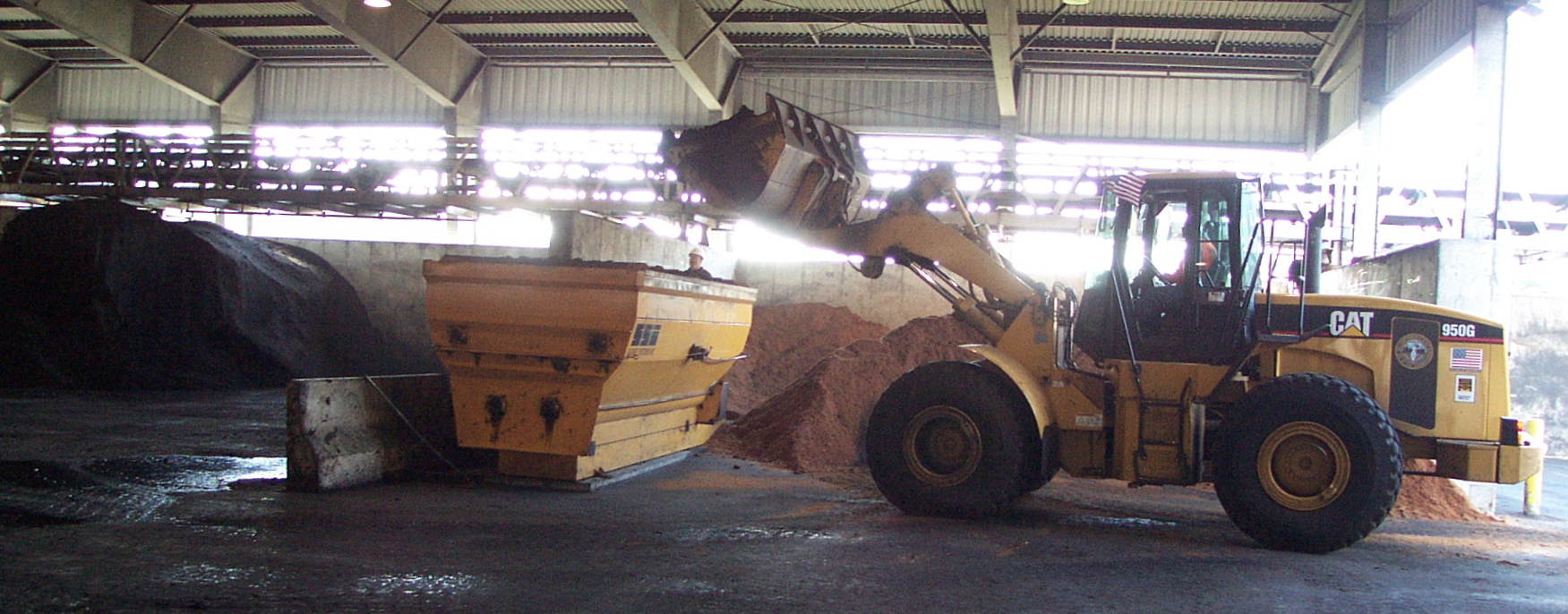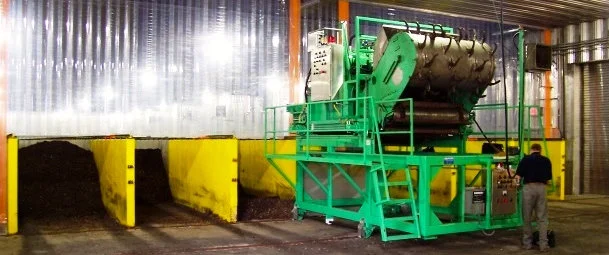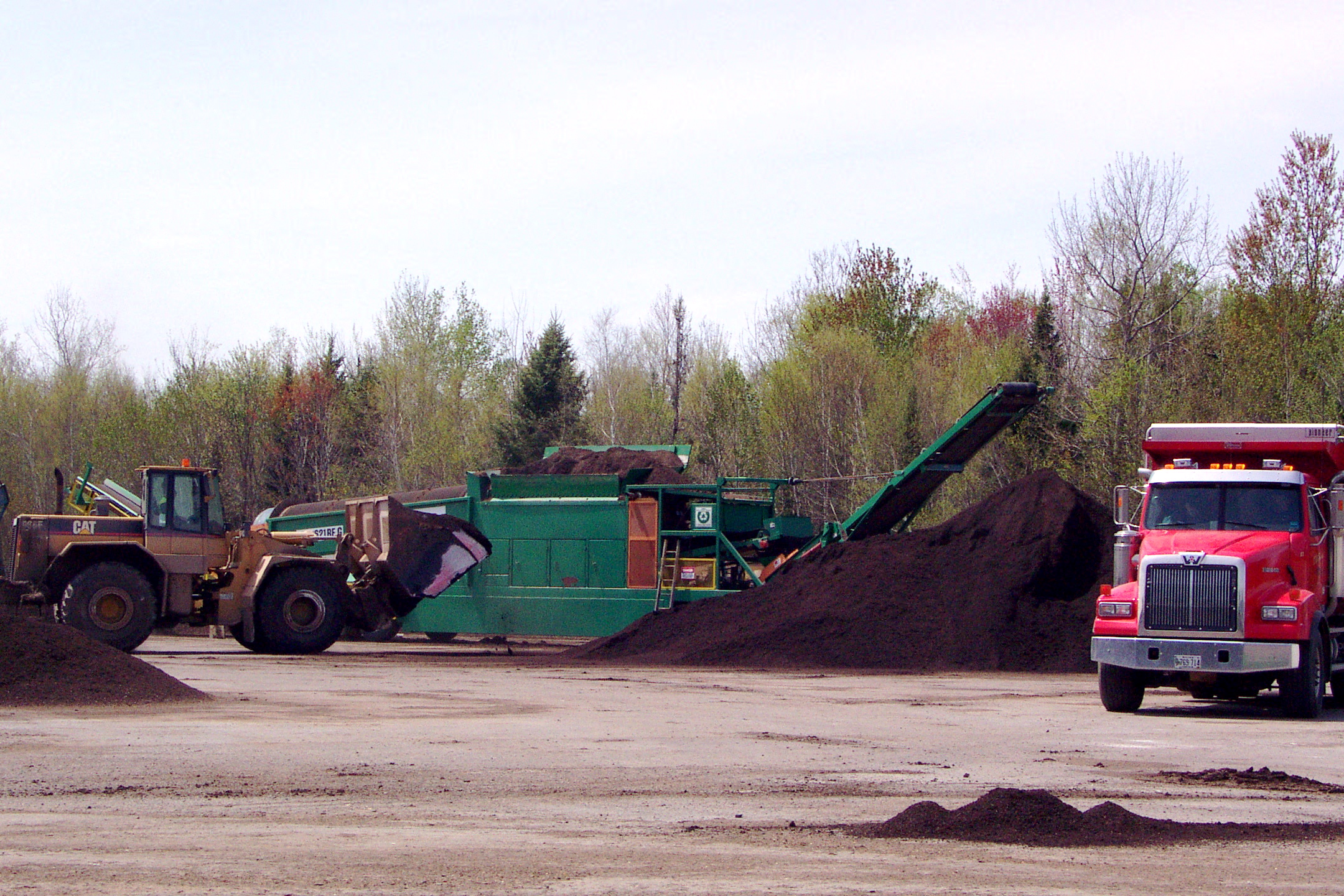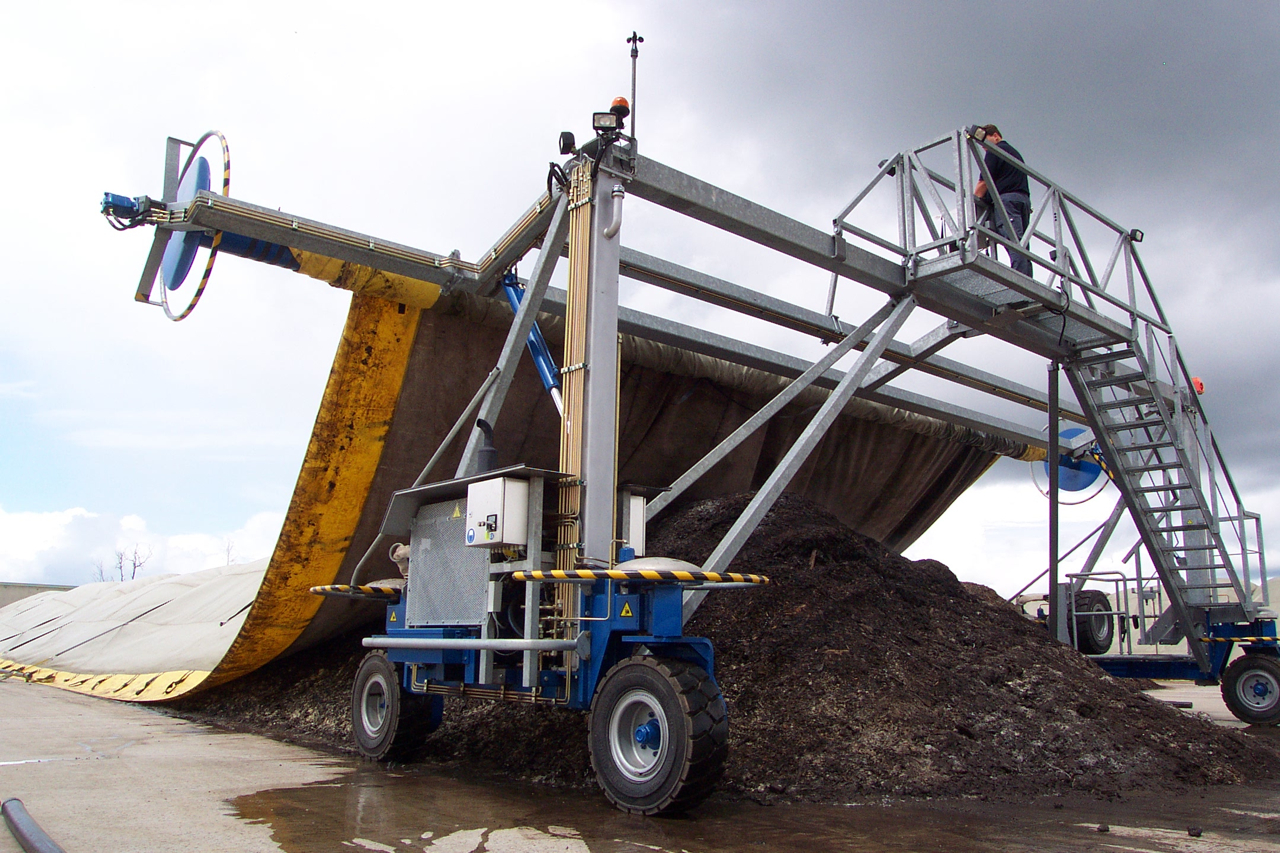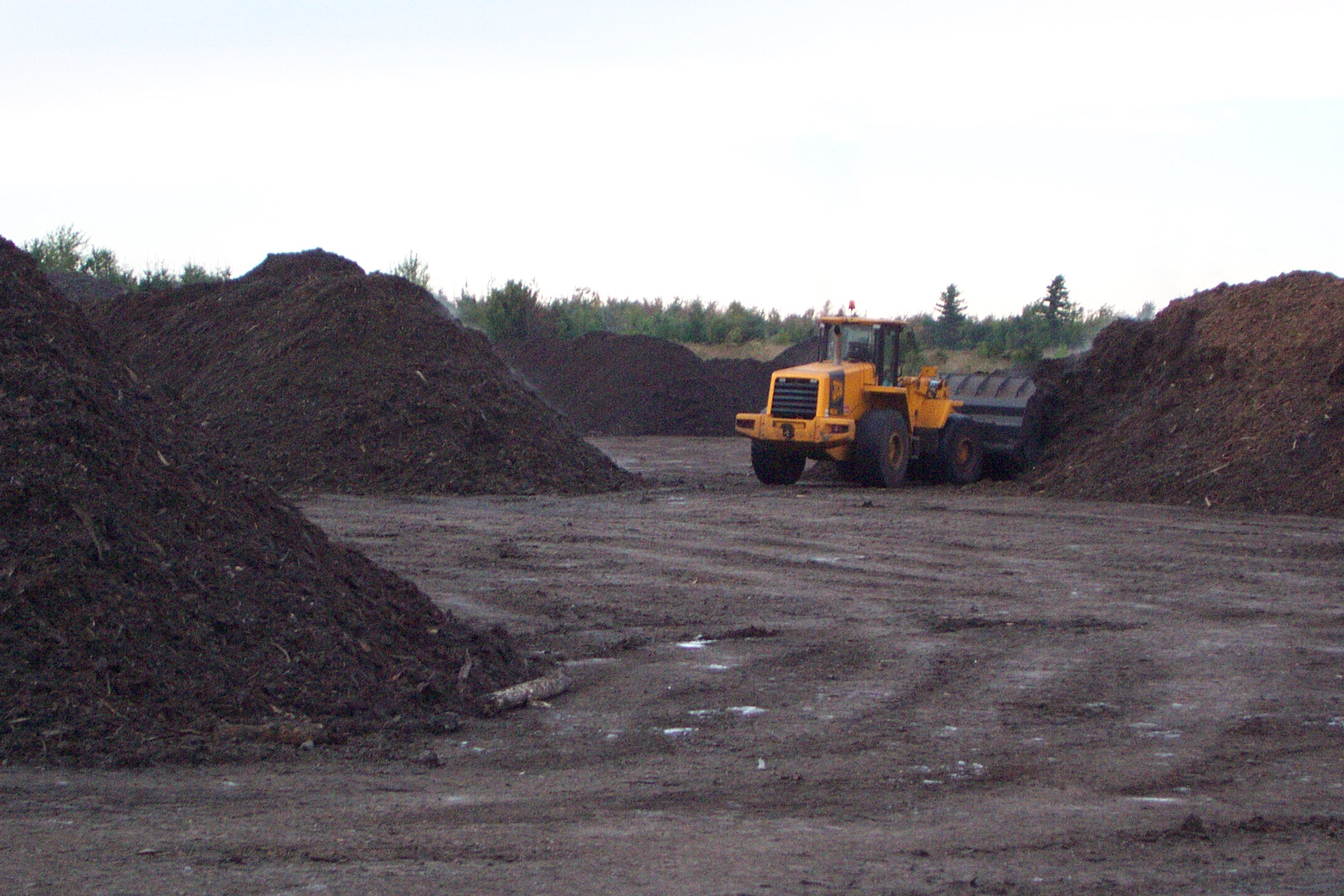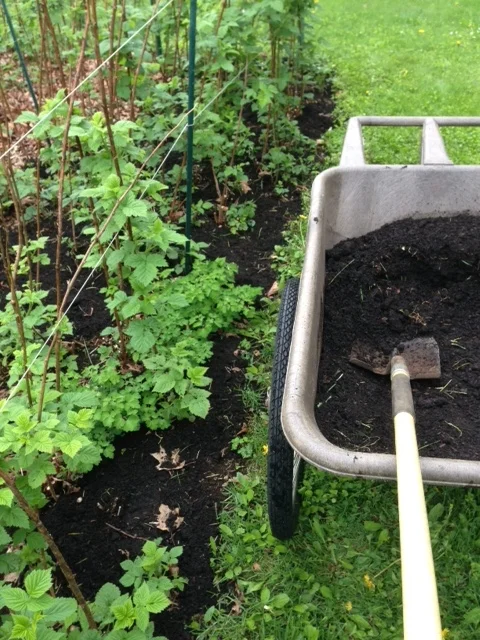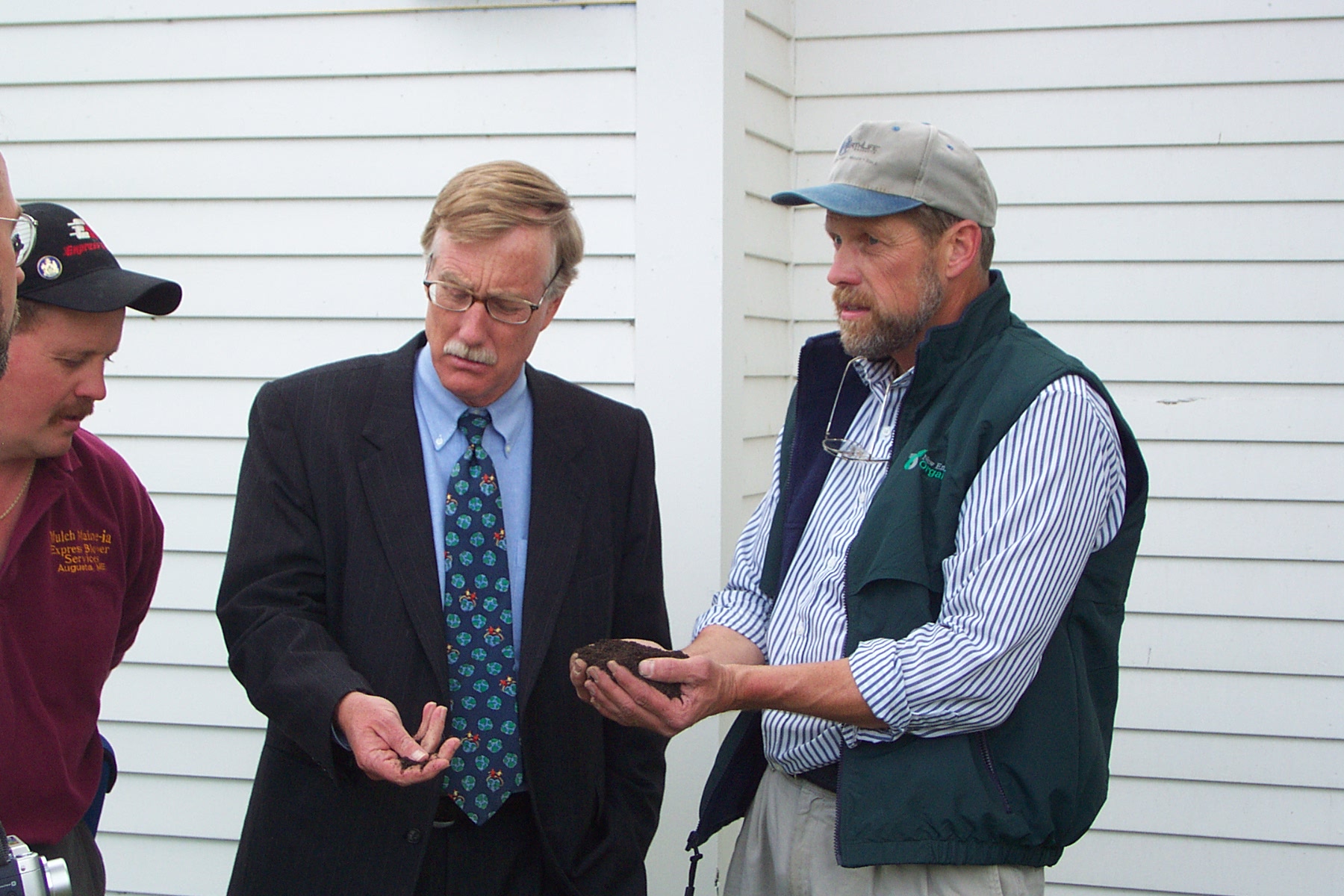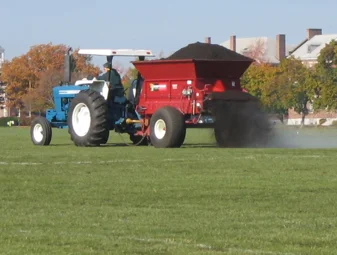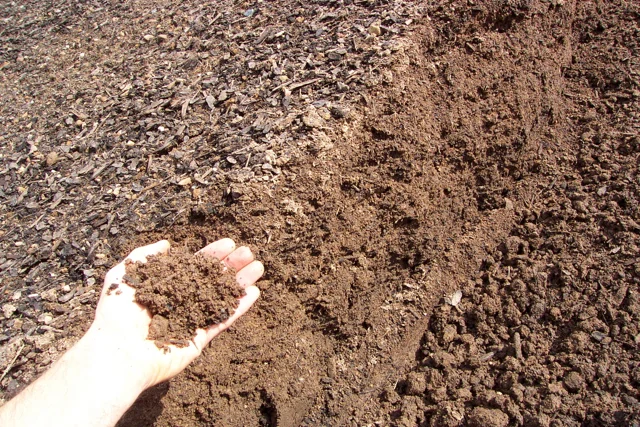Composting
Composting is a natural process in which aerobic organisms break down organic matter. Controlled composting ensures the proper conditions (temperature, pH, types of organic residuals) are present to rapidly create quality compost. Compost is a valuable soil amendment, providing organic matter and nutrients that enhance soil quality and crop growth.
Biosolids and other organic residuals are commonly composted in communities throughout North America. Some of these residuals are composted with just wood chips and/or sawdust. Others are co-composted with yard & leaf debris, food scraps, food processing residuals, pulp & paper mill residuals, wood ash, etc.
See:
Environmental Value of Applying Compost: Improving Soil Health for Stormwater Management, Contaminated Site Remediation, Ecosystem Restoration, Landscaping and Agriculture (EPA-ORD, 2025)
Biosolids Compost Fact Sheet, ACP, https://healthysoil.org (CA), 2020
The Compost Story Video - from Kiss the Ground
Biosolids Composting in the U. S. - 2010 Update (BioCycle, Dec. 2010)
Profiles in Biosolids Composting Success (BioCycle, Jan. 2011)
Biosolids Composting in the U. S. in 2010 (presentation to the NEWEA Annual Conference, Jan. 2011)
The Art of Composting - presentations at Tin Mountain Conservation Ctr., Albany, NH, May 23, 2013.
The Art of Composting: The Basics (Olivia Saunders, UNH Cooperative Extension)
The Many Benefits of Compost / Available Compost Products / Compost Quality & Safety (Ned Beecher, NEBRA)
Technical Details & Support for Composting:
Compost Sampling Videos (Dec. 2018)
Guidelines for Compost Quality, CCME, Canada, 2005
Canadian BNQ & CCME compost quality standards, M. Hébert, 2012
A shout out to Connor Stevens from the Daniel Webster Council of the Boy Scouts of America for this helpful link: A Homeowner’s Guide to Composting. He found that guide and this webpage to be great resources as he pursued his Sustainability Merit Badge!
Mechanical biosolids compost turning, enclosed biosolids composting facility, Lewiston-Auburn, ME.
This graphic comes from the Institute for Local Self-Reliance (www.ilsr.org), a national nonprofit organization working to strengthen local economies, and redirect waste into local recycling, composting, and reuse industries. It is reprinted here with permission. May 2016.

